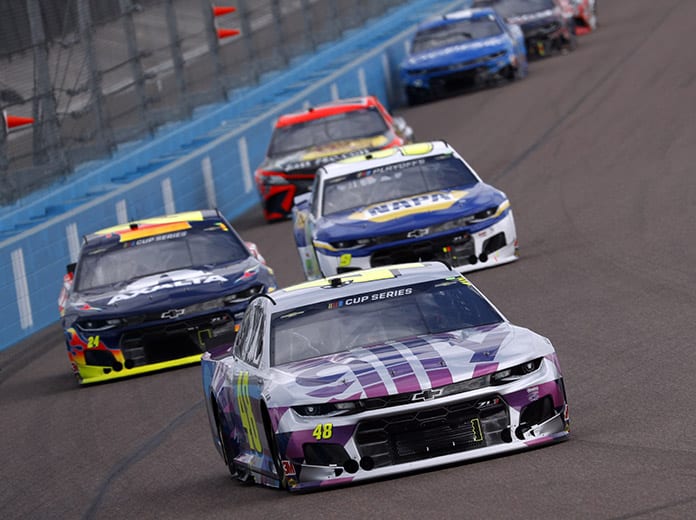AVONDALE, Ariz. — The NASCAR season came full circle this past weekend at Phoenix Raceway.
When the NASCAR Cup Series raced at the one-mile oval on March 8, few knew it would be the last race for the series in more than two months.
But then came the shutdown of all sports because of the COVID-19 pandemic. NASCAR was the first major sports organization to return to competition when it raced at Darlington (S.C.) Raceway on May 17.
Then through creative thinking and flexible scheduling, the series was able to complete its 36-race schedule, ending back at Phoenix Raceway on Nov. 8.
NASCAR President Steve Phelps acknowledged the challenges of the season during a media press conference on Saturday.
“The year has been, in short I would say extraordinary, although I could probably use 15 or 20 other words to try to get to something,” Phelps said. “It’s just unprecedented in the history of our country, in the history of sports and certainly in the history of our sport. I would suggest this is the single most difficult year that we’ve faced as a sport.
“But through it all this industry, I’ve said this before, I believe this industry does adversity better than any sport. If you think about it, we’re at a competitive disadvantage. We don’t own ourselves. We’re not franchised, right? We have independent contractors who come to race as one.
“What we have done during this global pandemic is I think nothing short of remarkable,” Phelps added. “We can’t do what we did as a sport without coming together.”
Phelps acknowledged the challenges of completing the full season.
“I think a couple highlights that I want to touch on that I’m particularly proud of,” Phelps said on Saturday. “When we shut down heading into Atlanta, we had no idea when we were going to get back to racing. It was our goal, and a stated goal, that we were going to run all races. Tomorrow when we crown a champion in our Cup Series, we will have run all our races. We did it through ways that frankly probably we didn’t think we could do, right?
“A bunch of midweek races, three doubleheaders, no practice and qualifying. Things that were kind of significant in bedrock that we do, right? You come to the race track, you’re here for three days, you practice, you qualify, you’re on your way, right?
“For us to be the first sport back without fans initially on May 17 in Darlington, to the first sport back with fans, I think it’s an extraordinary achievement.”
In the end, Phelps believes NASCAR racing is stronger for having weathered this storm.
“When we were here the last time and we raced here on March 8, we were focused on, ‘How is that short-track package going to work?’ It was up in the air, weren’t sure,” Phelps said. “We thought it was going to be great. By the way, it was. Then three, four days later, the world goes crazy, right? We’re just in a situation that was unthinkable.
“What I would say is that on March 8th we were a sport that was coming back, right? Our ratings had stabilized last year,” Phelps noted. “Our attendance was going in the correct direction. If you think about where we are as a sport today, I believe we’re stronger as a sport today than we were pre COVID. I believe that.
“I think that the momentum that we’ve been able to gain has been nothing short of incredible.”
